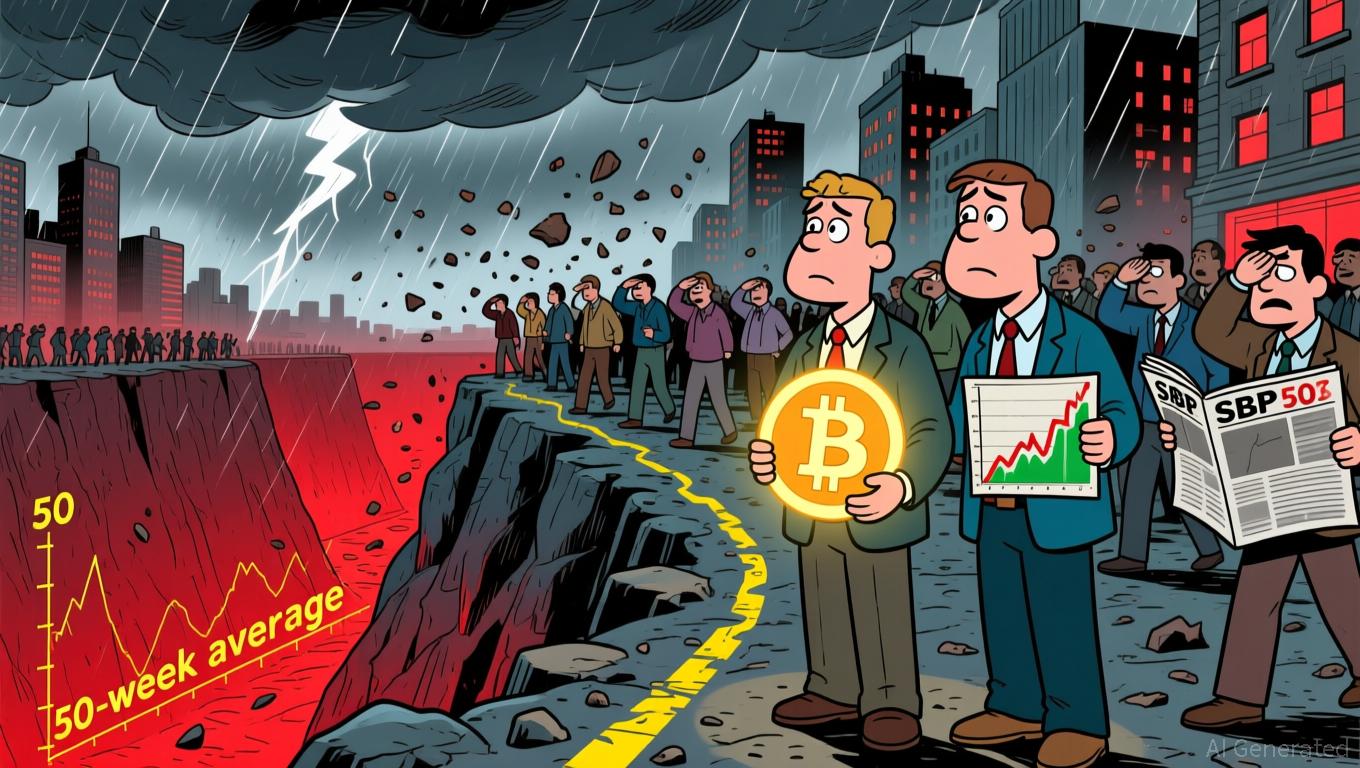2026 Energy Forecast: Renewable Energy Grows, Emissions Steady as AI Expands
- U.S. wholesale electricity prices projected to rise 8.5% in 2026 due to AI/data center demand surging in Texas. - Renewables to reach 26% of U.S. generation in 2026, but CO₂ emissions remain flat at 4.8 billion metric tons. - Tech giants invest $40B+ in AI infrastructure, driving innovations like Airsys' zero-water cooling systems and MiTAC's liquid-cooled clusters. - Natural gas maintains 40% generation share despite $4.00/MMBtu price surge, while oil prices fall to $55/barrel amid stable production. -
By 2026, the U.S. energy sector is poised for major changes, with electricity prices climbing due to heightened demand from data centers and cryptocurrency mining operations. The U.S. Energy Information Administration (EIA)
Renewable sources are projected to generate a record 26% of the nation’s electricity in 2026, with nuclear energy making up 18%,
Technology firms are ramping up infrastructure spending to address AI-related energy needs. Google revealed plans for a $40 billion data center expansion in Texas through 2027, while
The swift expansion of AI infrastructure is driving advancements in cooling technology.
Interest in geothermal energy is also on the rise.
Natural gas providers are adjusting to evolving market conditions.
The EIA’s November Short-Term Energy Outlook also
Changes in regulations are also impacting the clean energy industry.
As the U.S. seeks to balance the energy needs of AI with environmental objectives, the evolving mix of renewables, natural gas, and advanced cooling technologies will shape the industry’s direction in 2026.
Disclaimer: The content of this article solely reflects the author's opinion and does not represent the platform in any capacity. This article is not intended to serve as a reference for making investment decisions.
You may also like
Dogecoin News Today: Institutional Altcoin ETFs Resist Crypto Market Downturn
- Grayscale and VanEck launch Dogecoin/Solana ETFs as crypto markets decline, defying broader outflows. - U.S. spot Bitcoin ETFs see $870M outflows; Ethereum ETFs lose $259.7M amid third-week withdrawal streak. - Institutional altcoin ETFs gain traction with $550M+ assets, signaling growing crypto legitimacy in portfolios. - Ethereum's 3.6M token treasury and Fusaka upgrade optimism contrast with 4% ETF outflows of AUM. - Persistent retail caution contrasts with institutional adoption, as crypto's traditio

Bitcoin News Update: Blockchain.com’s Co-CEOs Steer Through Crypto Market Fluctuations as Company Relocates Headquarters to Texas
- Blockchain.com appoints Lane Kasselman as co-CEO alongside Peter Smith, adopting a dual leadership model to enhance operational efficiency during transition. - The firm relocates its U.S. headquarters to Dallas, Texas, leveraging the state's tax incentives, regulatory flexibility, and proximity to the Texas Stock Exchange. - This move aligns with broader corporate trends in Texas, as companies like Coinbase and McKesson shift operations to capitalize on business-friendly policies and innovation hubs. - T

Bitcoin Updates Today: Is Bitcoin’s Drop Indicating a Bear Market or Revealing Foundational Strength?
- Bitcoin's drop below $95,000 triggered a 2.8% S&P 500 decline, raising fears of synchronized market downturns. - American Bitcoin (ABTC) reported $3.47M profit but shares fell 13% as BTC price erosion offset mining gains. - 43-day U.S. government shutdown created information vacuum, while $869M Bitcoin ETF outflows highlighted investor panic. - Fed rate cut odds dropped to 45% amid inflation concerns, with analysts warning of cascading price drops below $90,000. - Institutional ETF adoption and $835M Mic

Hyperliquid News Today: Goldman: AI's $19 Trillion Buzz Surpasses Actual Progress, Bubble Concerns Rise
- Goldman Sachs warns U.S. stock markets have overvalued AI's economic potential, pricing $19T gains ahead of actual productivity impacts. - The bank identifies "aggregation" and "extrapolation" fallacies as key risks, mirroring historical tech bubbles from 1920s/1990s over-optimism. - AI expansion extends beyond tech sectors, with blockchain compliance tools and energy management markets projected to grow via AI integration. - Regulatory challenges persist as DeFi collapses expose gaps in AI token definit
